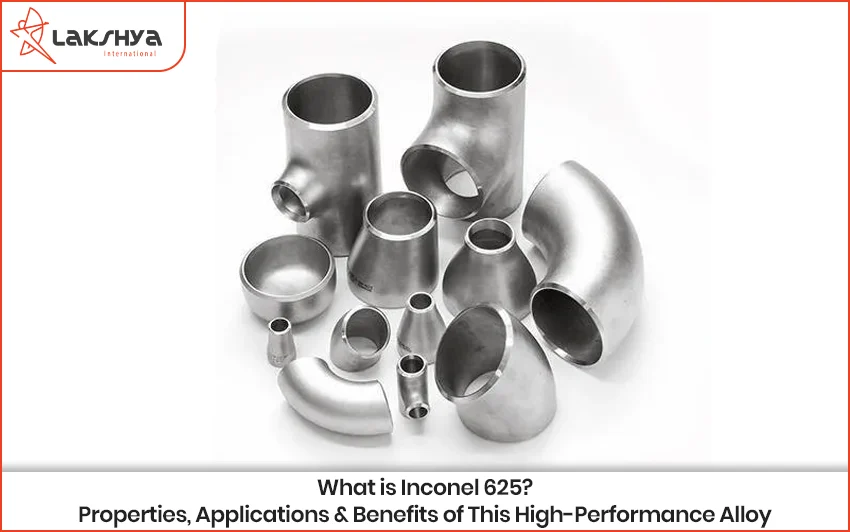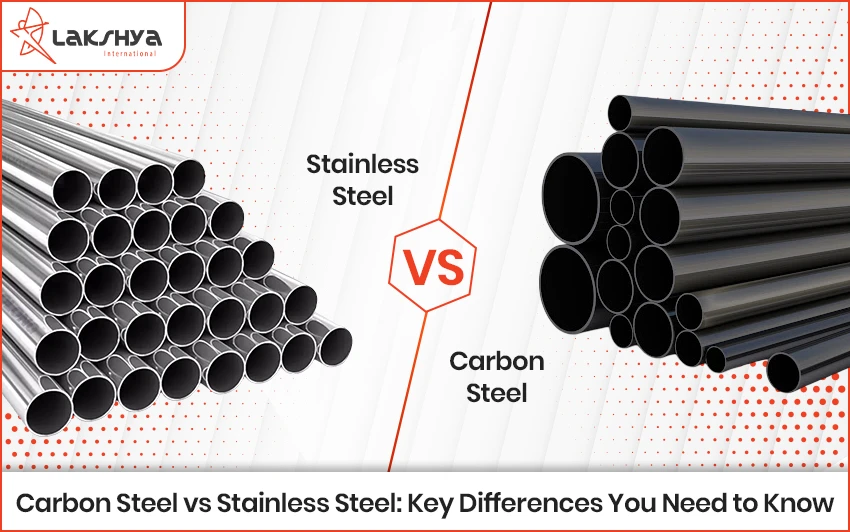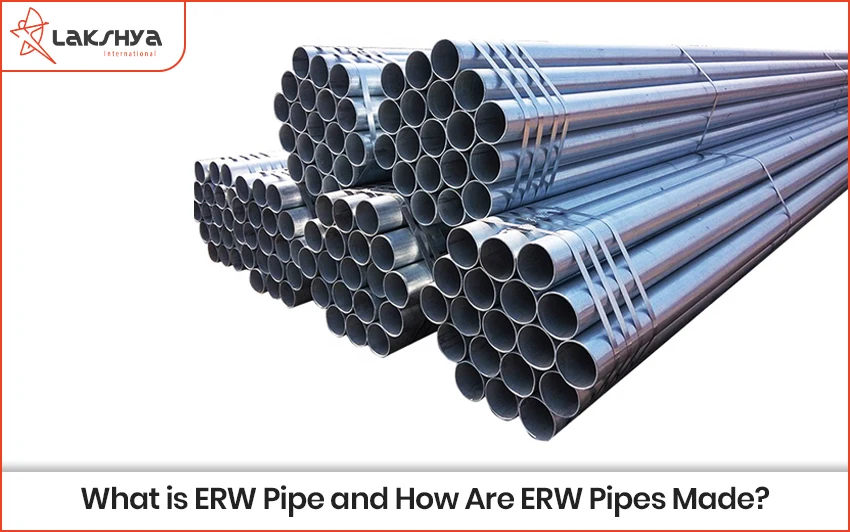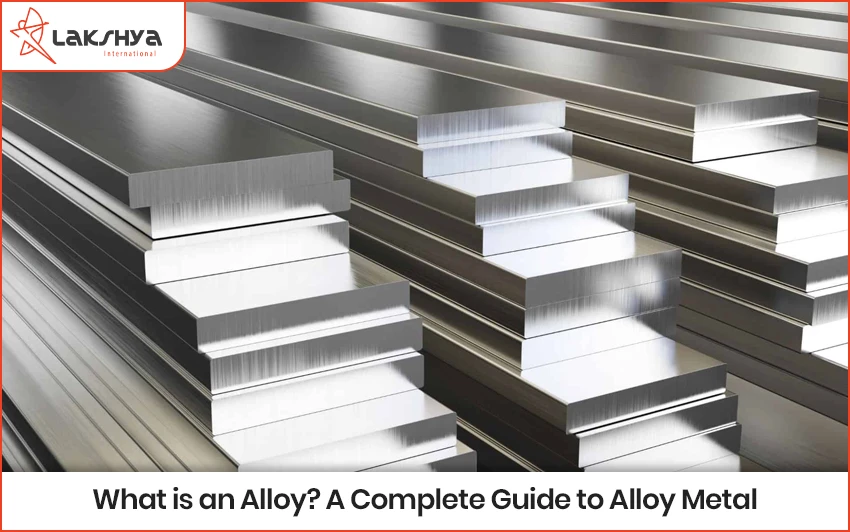High-performance nickel-based superalloy Inconel 625, also known as Alloy 625, is renowned for its remarkable strength, resistance to corrosion, and ability to function at high temperatures. Inconel 625, which is frequently utilized in sectors including power generation, chemical processing, aerospace, and marine, operates dependably even in the most trying circumstances.
This alloy is very strong and has a long service life, whether it is used as a pipe, plate, or bar.
Everything you need to know about Inconel 625 will be covered in this blog, including its characteristics, chemical makeup, production method, uses, and advantages.
What is Inconel 625?
Key Properties of Inconel 625 Material
Exceptional Corrosion Resistance to Oxidizing and Reducing Environments
High Strength Without the Need for Precipitation Hardening Treatments
Excellent Fatigue and Stress-Corrosion Resistance
Superior Weldability and Formability
Thermal Stability at High Temperatures (up to 980°C / 1800°F)
Chemical Composition of Inconel 625
| Element | Content (%) | Function / Property |
| Nickel (Ni) | 58.0% minimum | Provides base strength and enhances corrosion resistance |
| Chromium (Cr) | 20.0 – 23.0% | Improves resistance to oxidation and high-temperature degradation |
| Molybdenum (Mo) | 8.0 – 10.0% | Boosts resistance to pitting and crevice corrosion |
| Niobium (Nb) | 3.15 – 4.15% | Increases strength and enhances structural stability |
| Iron (Fe) | Up to 5.0% | Acts as a balancing element |
| Carbon (C) | 0.10% max | Minimizes carbide formation, improving corrosion resistance |
| Manganese (Mn) | 0.50% max | Helps in deoxidation and steel cleanliness |
| Silicon (Si) | 0.50% max | Aids in oxidation resistance and improves strength |
Inconel 625 Pipe – Manufacturing Process
How Inconel 625 Pipes Are Manufactured
- Melting and Alloying in a Vacuum Induction Furnace – High-purity raw ingredients are melted in a vacuum induction furnace in order to create a homogeneous alloy. This regulated atmosphere ensures continuous chemical composition for the finished product and helps to avoid contamination.
- Casting into Billets or Slabs – Once the alloy has melted, it is cast into solid forms like billets or slabs. These semi-finished forms are used as the raw material for additional sizing and shaping in hot and cold processing.
- Hot Working (Rolling or Forging) – To desired pipe sizes, the billets are heated via rolling or forging at high temperatures. With grain refining, this method reduces the thickness and moulds the material closer to pipe specifications by improving its mechanical characteristics.
- Cold Drawing to Refine Dimensions and Surface Finish – Following hot working, the pipes undergo cold drawing, a precision forming procedure carried out at room temperature, so refining dimensions and surface finish. It promotes better surface polish, tighter dimensional tolerances and strengthened integrity.
- Heat Treatment for Stress Relief and Improved Performance – Pipes are heat-treated to use the mechanical qualities like ductility, toughness and corrosion resistance as well as to release internal stresses brought on by cold working.
- Non-Destructive Testing (NDT) for Quality Assurance – Using strict non-destructive testing techniques such as ultrasonic testing, eddy current inspection and hydrostatic testing ensures damage free pipes. Before being delivered, this stage guarantees every Inconel 625 pipe’s structural integrity and safety.
Advantages of Using Inconel 625
Corrosion Resistance – In demanding settings including seawater, acidic chemical exposure, and alkaline solutions, Inconel 525 provides extraordinary resistance to corrosion. Its high nickel, chromium and molybdenum concentration renders it impervious to pitting, crevice corrosion and stress-corrosion cracking even under difficult marine or chemical processing conditions.
High Temperature Tolerance – At temperatures above 900°C (1650°F), the alloy maintains mechanical integrity and oxidation resistance. For high-heat uses such as jet engines, exhaust ducts and industrial furnaces where thermal stability is vital, this makes it perfect.
Low Maintenance – Inconel 525 components have a longer service life due in part to their durability and corrosion resistance. This greatly lessens the need for regular inspections, repairs, and replacements that result in cheaper running costs and over time less downtime.
Excellent Fatigue Resistance – Conel 625 won’t lose strength or deform under repeated cyclic stress. For uses including continuous vibration or pressure variations, such offshore pipe systems and aircraft engine components, which makes it more accurate.
Versatile Applications – One of Alloy 625’s main strong points is its adaptability. It is easy to manufacture into pipes, flanges, plates and bars without sacrificing performance since it performs quite well in both welded and non-welded environments. Its flexibility in several forms improves its use in many different structural and industrial contexts.
Common Applications of Inconel 625
Some of the most demanding sectors worldwide employ inconel 625. Its special mix of characteristics qualifies for:
- Used in heat exchangers, reactors, offshore pipe systems, Inconel 625 Pipe
- Critical for chemical transportation lines and high-pressure pipes, inconel 525 flange
- Inconel 625 Plate: Applied in industrial furnaces, structural elements and thermal shielding
- Ideal for fasteners, valve stems and shafts in marine and aeronautical applications, Inconel 625 Bars
Types of Inconel 625 Products
- Inconel 625 Pipe – Naval systems, seawater heat exchangers, flue gas scrubbers all use these pipes, which resist stress corrosion cracking caused by chloride.
- Inconel 625 Flange – Essential in petrochemical and power facilities, the inconel 625 flanges keep joint integrity under pressure and temperature changes.
- Inconel 625 Plate – Perfect for gas turbines and aviation ducting systems, Inconel 625 Plate Plates provide great structural strength and corrosion resistance.
- Inconel 625 Bars – Particularly in aircraft and marine propulsion systems, bars are employed where high tensile strength and surface stability are needed.
How Inconel 625 Compares to Other Alloys
Inconel 625 vs. Inconel 718
| Feature | Inconel 625 | Inconel 718 |
| Composition | Ni-Cr-Mo-Nb | Ni-Cr-Fe-Nb-Mo-Ti-Al |
| Strength | High, excellent for welding | Higher, but requires aging |
| Temp Resistance | Up to 980°C | Up to 700°C |
| Weldability | Excellent | Good, but needs post-treatment |
| Usage | Marine, chemical, aerospace | Aerospace engines, turbines |
Cost and Performance Comparison with Stainless Steel
- Superior Corrosion Resistance – In settings including seawater, strong chemicals and high salinity, Inconel 625 beats stainless steel. For industries like maritime, chemical processing and aerospace, its resistance to pitting, crevice corrosion and stress-corrosion cracking qualifies as a better long-term solution.
- Longer Service Life – Alloy 525’s durability results in less replacements, less maintenance over time even if its upfront cost is more. On the other hand, stainless steel parts could break down more often under demanding environments.
- Better Performance Under Extreme Temperatures and Pressures – Alloy 625 resists high-pressure situations without losing strength and preserves structural integrity at far higher temperatures up to 980°C (1800°F). Usually losing performance under such extremes, stainless steels are limited in usage in high-heat or high-stress applications.
How To Select the Correct Inconel 625 Product For Your Requirements
Factors to Consider Based on Industry Requirements
- Operational surroundings: Temperature, pressure and contact to corrosive media
- Tensile, fatigue and impact strength needs define mechanical load.
- Installation requirements will guide your choice of pipe, bar, plate, or flange.
- Weldability and fabrication: Think through machining or welding ease of use.
Certifications and Quality Standards
Make sure the Inconel 525 material satisfies international standards including
- ASTM B 444 / B705 for pipes and tubes.
- ASTM B564 in reference to flanges
- Boiler and Pressure Vessel Code: ASME
- ISO 9001:2015 certification for manufacturing plants
Conclusion – Why is Inconel 625 a top choice for high-performance companies?
Choosing Alloy 625 for important uses means making investments in unparalleled performance, low maintenance, and peace of mind. In marine engineering, chemical processing, or aerospace, Inconel 625 is your dependable friend for long-term success.




